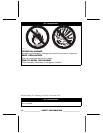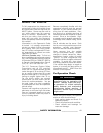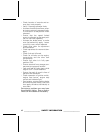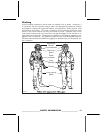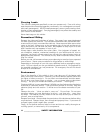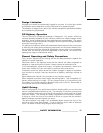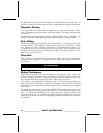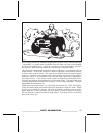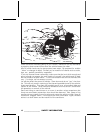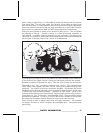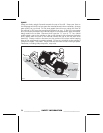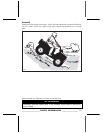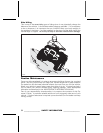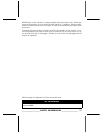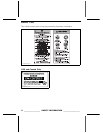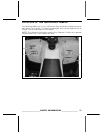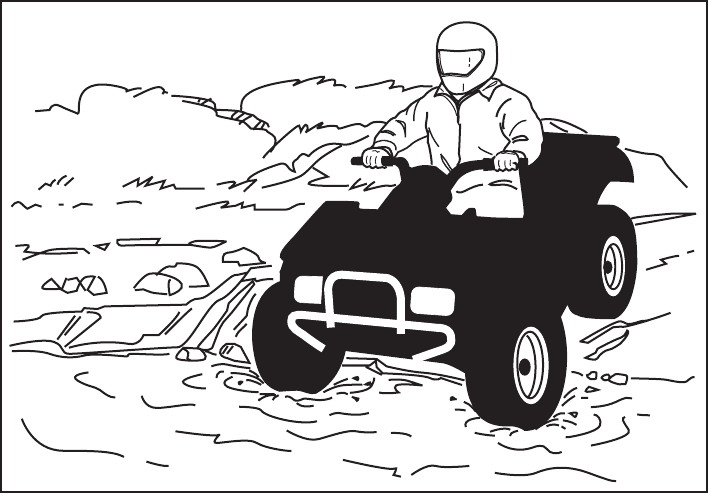
V00A0VL
Water will affect the braking ability of your vehicle. Make sure you dry the brakes
by applying them several times after the vehicle leaves the water.
Mud or marsh lands may be encountered near water. Be prepared for sudden
“holes“ or changes in depth. Similarly so, be watchful of hazards such as rocks,
logs, etc., partially covered by vegetation.
If your trip crosses frozen waterways, make sure that the ice is thick enough and
sound enough to support the total weight of yourself, the vehicle and its load.
Be ever watchful of open water... it is a sure indication that the ice thickness will
vary. If in doubt, do not attempt to cross.
Ice will also affect the control of vehicle. Slow down and do not “gun“ the throt-
tle. This will only result in spinning of the tires and possible tipover of the vehicle.
Avoid rapid braking. This again will possibly result in an uncontrolled slide and
tipover of the vehicle. Slush should be avoided at all times since it could block
the operation or controls of the vehicle.
Sand and riding on sand dunes or on snow is another unique experience but
there are some basic precautions that should be observed. Wet, deep or fine
sand/snow may create a loss of traction and cause the vehicle to slide, drop off
or become “bogged“ down. If this occurs look for a firmer base. Again, the best
advice is to slow down and be watchful of the conditions.
48
___________
SAFETY INFORMATION
___________



